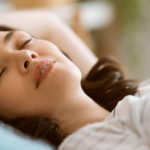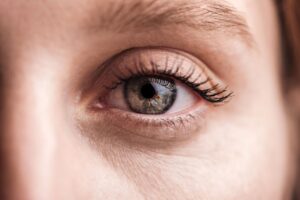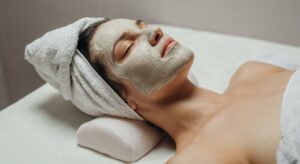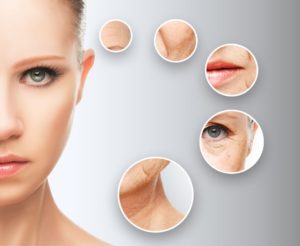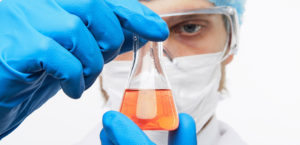Sleep requirements differ from person to person. Some might need more than 9 hours of sleep, while others may need less than 7 hours. But most healthy adults require 7 to 9 hours of sleep for them to operate at their best.
We all know that lack of sleep also referred to as sleep deprivation by other people, can make us foggy and grumpy. But did you know that it can also affect your body as a whole? According to a study done by the Centers for Disease Control and Prevention (CDC), more than 1 in 3 adult Americans don’t get enough sleep. Every year, more research is conducted and shows results about the many health problems linked with sleep deficiency, which involve obesity, diabetes, depression, accidents, and heart ailment. Furthermore, did you know that sleep deprivation can damage the skin? Read further to know what sleep can do to the body and skin.
Sleep and the Body
The body is known to recover and regenerate the cells when we are asleep. Thus, the term “beauty sleep” was declared a real thing by some researchers. It’s also a moment when healthy cells climb to the surface of the skin and repair the harm done during the day.
The vitamins and minerals in the skin start to decrease when it can’t heal at night. This can reduce the volume of moisture in the skin commencing to inflammation, dehydration, and irritants. Thus, it can stimulate the appearance of fine lines and wrinkles.
Sleep and the Skin
During the first three hours of our sleep, human growth hormones are produced from the pituitary gland, known as the “master gland” which handles the operation of most of the hormone-secreting gland. This hormone is important as we age, for this hormone maintains the youthfulness and radiant effect of the skin.
Melatonin production is improved in the next two hours of our sleep. Melatonin is a hormone that is discharged by the pineal gland. It is deemed to control the circadian rhythm or the sleep/wake rhythms of our bodies. It also operates as an antioxidant that assists in protecting the skin from damaging free radicals.
Finally, the last three hours of our sleep is where the production of cortisol, the stress hormones, is decreased. Since the temperature of the skin descends to its lowest point, the muscles can relax and become motionless, therefore giving the skin its deepest recovery of the night.
Increases Stress
Stress has a direct impact on your skin. The stress level rises when you don’t get enough sleep. This stress increases the cortisol level in your body. Cortisol is considered an absolute abomination to your body for it wrecks your immune system, blood sugar levels, and of course, your skin.
Excess cortisol prompts your skin to produces more sebum than usual. Excess sebum causes inflammation, which may lead to acne as the oil clogs the pores.
Causes Pigmentation
Another reason why you should get your beauty sleep is that sleep deprivation causes pigmentation. Insufficient sleep causes poor blood circulation, which can also lead to a lack of oxygen in the blood and can thus induce skin pigmentation.
Sleep deprivation can also increase the production of adrenocorticotropic hormone, a hormone secreted by the pituitary gland that causes skin pigmentation. This hormone may stimulate tyrosinase in melanocytes, ending in the development of ultraviolet-induced pigmentation.
Ages Your Skin
Dull skin and puffy eyes are the most common consequences experienced by several people who missed a few nights of sleep. But severe sleep loss can lead to something more serious such as gloomy skin, fine lines, wrinkles, age spots, and dark circles under the eyes.
The body tends to produce more cortisol, a stress hormone if it doesn’t get sufficient sleep. Too much cortisol in the body can break down the skin’s collagen, the protein responsible for retaining the skin’s elasticity and smoothness.
Low Production of Growth Hormones
Sleep deprivation stimulates the body to release much less human growth hormone than what is required. The human growth hormone stimulates growth during adolescence.
During a night of deep sleep, or what we so-called night of slow-wave sleep, that growth hormones are discharged. It appears to be a part of a natural tissue healing and restoration, especially for the skin.
Solving Skin Problems Due to Lack of Sleep
The most common and easiest way to fix the damage done by sleep deprivation is by getting more sleep. However, this doesn’t mean that you should begin sleeping for more than 10 hours a night. Getting too much sleep doesn’t mean that it can speed up the healing process, and it isn’t healthy as well. Be sure to get 7-9 hours of sleep each night, and soon you’ll look good and feel better than before.
Sleep needs to be a priority no matter how busy you are with life. Make sure you’ve got a steady bedtime and waking time. Lastly, staying up late and not consistently getting up each morning will do more harm than good.
*Information in this article is not medical advice and may not be factually accurate. It is intended for entertainment purposes only. Consult with a physician before attempting any tips in this blog post and to get the most up to date factual data about any procedure or treatment.




